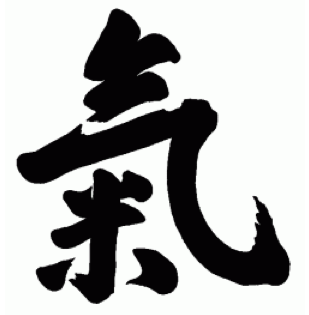The power of subtle thoughts
Gil Fronsdal, in one of his online dharma talks, (I'm not sure, maybe this one) spoke about the power of subtle thoughts. He described how, in the early days of his practice of meditation, he became interested in the idea of "falling in love." Because his meditation practice involved noticing the thoughts that came into his mind, he was able to distinguish a point when his thoughts about someone changed, when he thought, "Ah, this woman has such and such qualities. I could be in love with her." It was after that decision that he began the process of "falling in love."
Many forms of meditation practice (including traditions such as Zen, Vipassana and others) involve mindfulness or "noticing" of the types of thoughts that come to mind as we sit. Many people find as they practice in this way that they are gradually more able to distinguish these subtle thoughts. This can lead to a sense of having more power or control over one's life, because normally we don't "hear" these subtle thoughts, we just obey the emotions they generate. So separating them gives us the ability to decide whether or not to act. Just think: If you had not fallen in love with that guy who was sooo bad for you...If you had not yelled at that police officer...if you hadn't spent all your money on that dress...
In addition to keeping you from doing bad things, there are many constructive results of distinguishing subtle thoughts. I may not realize how often I repeat to myself: "I am so clumsy," or "I hate practicing the saxophone," or "I will never get ahead in this job." When I can recognize this thought, and realize that it's just a thought, not a reality, I can see that perhaps I am not clumsy. I can allow myself to enjoy practicing. I can see the opportunities for advancement that I ignored.
The extraordinary "success coach" Tony Robbins is fully aware of the power of our subtle thoughts and narratives. He works on teaching people how to rewrite those inner narratives so that his clients can get what they really want. And he's got a lot of happy clients.
If you need more incentive to try meditation, how about: getting everything you want? Would that be enough of a motivation?
Many forms of meditation practice (including traditions such as Zen, Vipassana and others) involve mindfulness or "noticing" of the types of thoughts that come to mind as we sit. Many people find as they practice in this way that they are gradually more able to distinguish these subtle thoughts. This can lead to a sense of having more power or control over one's life, because normally we don't "hear" these subtle thoughts, we just obey the emotions they generate. So separating them gives us the ability to decide whether or not to act. Just think: If you had not fallen in love with that guy who was sooo bad for you...If you had not yelled at that police officer...if you hadn't spent all your money on that dress...
In addition to keeping you from doing bad things, there are many constructive results of distinguishing subtle thoughts. I may not realize how often I repeat to myself: "I am so clumsy," or "I hate practicing the saxophone," or "I will never get ahead in this job." When I can recognize this thought, and realize that it's just a thought, not a reality, I can see that perhaps I am not clumsy. I can allow myself to enjoy practicing. I can see the opportunities for advancement that I ignored.
The extraordinary "success coach" Tony Robbins is fully aware of the power of our subtle thoughts and narratives. He works on teaching people how to rewrite those inner narratives so that his clients can get what they really want. And he's got a lot of happy clients.
If you need more incentive to try meditation, how about: getting everything you want? Would that be enough of a motivation?




Comments
Post a Comment